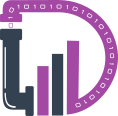In the dynamic world of the hospitality industry, the role of advanced analytics has emerged as a transformative force, reshaping the way hotels and businesses cater to their guests. By harnessing the power of data, advanced analytics empowers these establishments to make data-driven decisions that enhance operational efficiency, boost revenue, and create tailored, memorable experiences for their guests. In this rapidly evolving landscape, data-driven insights have become the compass guiding the hospitality sector towards greater success and competitiveness.
Elevate Your Hospitality Business with Advanced Analytics

Data analytics can be applied to various areas in the utilities sector. Here are some of the most common use cases:
Boost Revenue with Data-Driven Dynamic Pricing
In the fiercely competitive world of hospitality, dynamic pricing is a game-changer. Advanced analytics can optimize room rates in real-time, leveraging historical data, local events, and weather forecasts to set the perfect prices, attracting more guests and maximizing your revenue.
Uncover New Revenue Opportunities with Guest Data Analysis
Your guests leave behind valuable digital footprints that we can turn into actionable insights. Our data analysis uncovers guest preferences and behaviors, enabling you to identify upselling opportunities and provide tailored services that delight your guests and boost your revenue.
Optimize Hotel Distribution Channels with Data-Driven Insights
Distribution channels are the lifeblood of your business. Advanced analytics helps you understand the performance of various channels, such as online travel agencies (OTAs) and direct bookings. This knowledge empowers you to allocate resources effectively, ensuring you get the most out of each channel.
Enhance the Guest Experience with Data-Powered Personalization
Modern guests demand personalization, and advanced analytics deliver. From tailored room preferences to curated dining recommendations, personalization leaves a lasting impression on your guests, leading to enhanced satisfaction and loyalty.
Predictive Maintenance for Facilities
Predictive maintenance is a powerful application of advanced analytics. By analyzing data from various hotel systems, such as HVAC, elevators, and kitchen equipment, you can predict when equipment is likely to fail. This allows you to proactively schedule maintenance, reducing downtime and ensuring a seamless guest experience.
Inventory Management and Cost Optimization
Advanced analytics can help hotels optimize inventory management for consumables like toiletries and linens. By analyzing historical consumption data and occupancy rates, you can reduce waste and ensure that you always have the right amount of supplies on hand, leading to cost savings.
Fraud Detection and Prevention
In the hospitality industry, fraud can occur in various forms, such as payment card fraud or employee theft. Advanced analytics can detect unusual patterns in transactions and alert you to potential fraud. This helps protect your business's finances and reputation.
Staff Scheduling and Workforce Optimization
Optimizing staff scheduling is crucial for hotels. Advanced analytics can help you determine the optimal staffing levels based on historical occupancy data and events. This ensures that you have the right number of staff members to provide excellent service while controlling labor costs.
Energy Management and Sustainability
Hotels can benefit from energy management through advanced analytics. By analyzing energy consumption data and occupancy patterns, you can identify opportunities to reduce energy usage and enhance sustainability. This not only lowers operational costs but also aligns your business with eco-conscious travelers' preferences.
Sentiment Analysis and Reputation Management
Monitoring online reviews and social media mentions is vital for maintaining a positive reputation. Advanced analytics can perform sentiment analysis to gauge guest satisfaction and identify areas that require improvement. This enables you to proactively address concerns and enhance your hotel's online image.
Challenges of Data Analytics in the Hospitality Sector
Data analytics has immense potential to transform the hospitality sector, but it also comes with its share of challenges. Here are some of the key challenges faced by the hospitality industry in implementing data analytics:
-
Data Quality and Integration: Ensuring data accuracy and consistency can be a significant challenge. The hospitality sector often deals with data from various sources, and integrating this data into a single, coherent system can be complex.
-
Data Security: Protecting guest information and maintaining data security is paramount. The industry is a prime target for cyberattacks, making it crucial to implement robust security measures to safeguard sensitive data.
-
Scalability: As hotel chains and businesses grow, the volume of data generated increases exponentially. Ensuring that data analytics systems can scale to handle this growth is essential.
-
Legacy Systems: Many hotels and businesses in the hospitality sector still use legacy systems that are not easily integrated with modern data analytics tools. Adapting or replacing these systems can be costly and time-consuming.
-
Talent Shortage: Skilled data analysts and data scientists are in high demand. Finding and retaining talent with expertise in data analytics can be a challenge for the industry.
-
Regulatory Compliance: The hospitality industry is subject to various regulations, such as GDPR and CCPA, which require stringent data handling and privacy measures. Complying with these regulations while utilizing data analytics can be complex.
-
Costs: Implementing data analytics solutions can be costly, especially for smaller businesses. From software and hardware to training and ongoing maintenance, the expenses can add up.
-
Data Silos: Different departments within a hotel often operate in data silos, limiting the sharing of data and insights. Overcoming these silos and fostering a data-driven culture can be challenging.
-
Guest Expectations: Guests increasingly expect personalized experiences, which place higher demands on data analytics. Meeting these expectations while protecting guest privacy can be a delicate balance.
-
Change Management: Implementing data analytics often requires a cultural shift within the organization. Resistance to change and ensuring that staff embrace data-driven decision-making can be a hurdle.
-
Real-time Analytics: In a fast-paced industry, real-time analytics are crucial. Processing and analyzing data in real-time to respond to changing conditions and guest demands can be technically challenging.
-
Return on Investment (ROI): Measuring the ROI of data analytics initiatives can be difficult, especially in the short term. Demonstrating the value of data analytics to stakeholders is essential.
Despite these challenges, the benefits of data analytics in the hospitality sector are substantial. Overcoming these obstacles through strategic planning, technology investments, and a commitment to data-driven decision-making can position businesses for long-term success and competitiveness in the industry. With the right skills, expertise, and tools, data analytics can help hospitality companies to navigate the challenges of the rapidly evolving hospitality sector and succeed in the digital age.
In this blog post, we'll explored the remarkable potential of advanced analytics for the hospitality industry. From boosting revenue with data-driven pricing to enhancing the guest experience through personalized services, our data-driven solutions will put your business ahead of the competition. DATA LEAGUE, a dynamic data consulting start-up, is ready to supercharge your success with cutting-edge data analytics.
Are you a forward-thinking hospitality business? Are you Ready to transform?
Speak to a DATA LEAGUE expert today and let's embark on a data-driven journey that will elevate your business and captivate your guests. Your future in the hospitality industry has never looked brighter.

